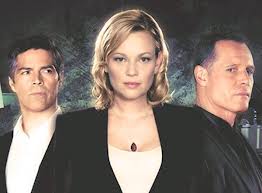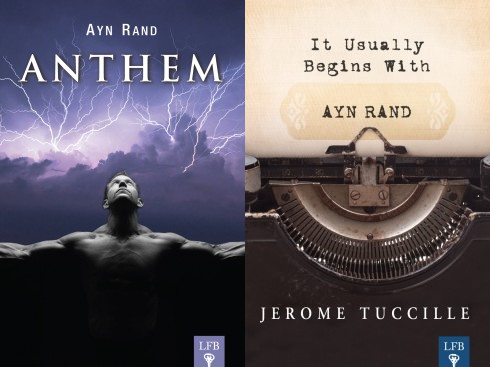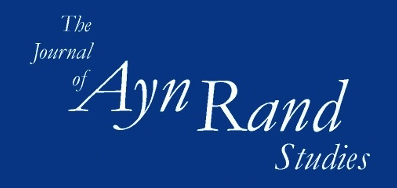Um, spoiler alert I guess.
I just got back from seeing Atlas Shrugged Part II. (Actually the full title turns out to be Atlas Shrugged Part II: The Strike, though the strike is never mentioned as such in this film, even though it was mentioned in the last one.) I thought it was better on the whole than Part I (especially in the second half, where I began to feel Rand’s aesthetic vision coming through a little bit), though many of my reservations about Part I apply to II as well.

The new Dagny does a decent job, but she doesn’t have the commanding presence the role requires. (Nor did the previous Dagny.) She also seems a bit too old for the role, just as the previous Dagny seemed a bit too young. But the new Rearden seems pretty good (if also a bit too young), and Adama’s dad as the new Francisco is excellent, I thought; plus Arye Gross unexpectedly steals the show as Ken Danagger. As in the first movie (though in a quite different way), Wesley Mouch seems much too forceful; he should be more of a Karl Rove type.
There are some surprise cameos, including treats for Star Trek and Babylon 5 fans – and a nauseating cameo from Sean Hannity, who plays himself defending Rearden (thereby inexcusably linking Rand’s ideas with the GOP agenda; for all Rand’s deviations from the left-libertarian plumbline, she still doesn’t deserve that).
While some plot compression is unavoidable, I was sorry to see Rearden’s development arc shortchanged, and the character of Ragnar (always a favourite with anarchists) eliminated entirely. And although setting the film in our own future rather than in Rand’s (in effect) alternate timeline was probably unavoidable (for financial reasons), one of the many costs of this decision is that, given contemporary sexual mores, the threatened blackmail over Dagny’s affair simply becomes unbelievable.
Jim Peron mentioned to me at Libertopia how unfortunate it was that the Jeff Allen scene was changed. Having seen the movie, I understand why they did it – to save time by having the same person who provides the information about Galt’s time at the 20th Century Motor Company also be the person who helps Dagny find transportation when her train is stopped. But as Jim noted, the chance to subvert popular perceptions of Rand by keeping to the original story where Dagny rescues and befriends a tramp who was about to be thrown off the train is a regrettable missed opportunity. The movie also doesn’t make clear, as the book did, that most of the regulations against which Dagny is fighting are special favours for her company, not restrictions on it; this change underplays Rand’s anti-corporatist message. (The cheap shots at the Occupy movement are annoying, but admittedly not un-Randian.)
The special effects, while subpar, are forgivable, with the exception of the John Galt Bridge scene, where the angle of the bridge just looks weirdly askew, as though the laws of perspective have undergone local deformation.
Apart from the action scenes (which I thought were handled reasonably well, given budgetary constraints), the pacing seemed a bit too languid and lacking in energy. I’m no devotee of fast cuts for fast cuts’ sake; after all, I love the opening scene of The Good, the Bad, and the Ugly. But lingering scenes should have something worth lingering for; there were a number of scenes (at Jim’s wedding party, for example) where each shot seemed to last about twice as long as it needed to. The worst instances of excessive lingering were on the homeless man’s 1776 sign around mid-film, and the Dagny/Galt meeting at the end; it’s a bit too much like shouting and pointing “ooh, feel the significance!” The same applies to the onscreen Rand quote at the end, needlessly hammering the message home. (Plus, re the Dagny/Galt meeting, why does Galt, having quite sensibly told the injured Dagny not to move, then hold out his hand in such a way as to require her to crawl forward?)
Still, I hope they make the third one – though given that there were only three people in the theatre tonight, a week after it opened, there are reasons to worry.
In other movie news, last night I finally saw Looper, which I thought was terrific.


